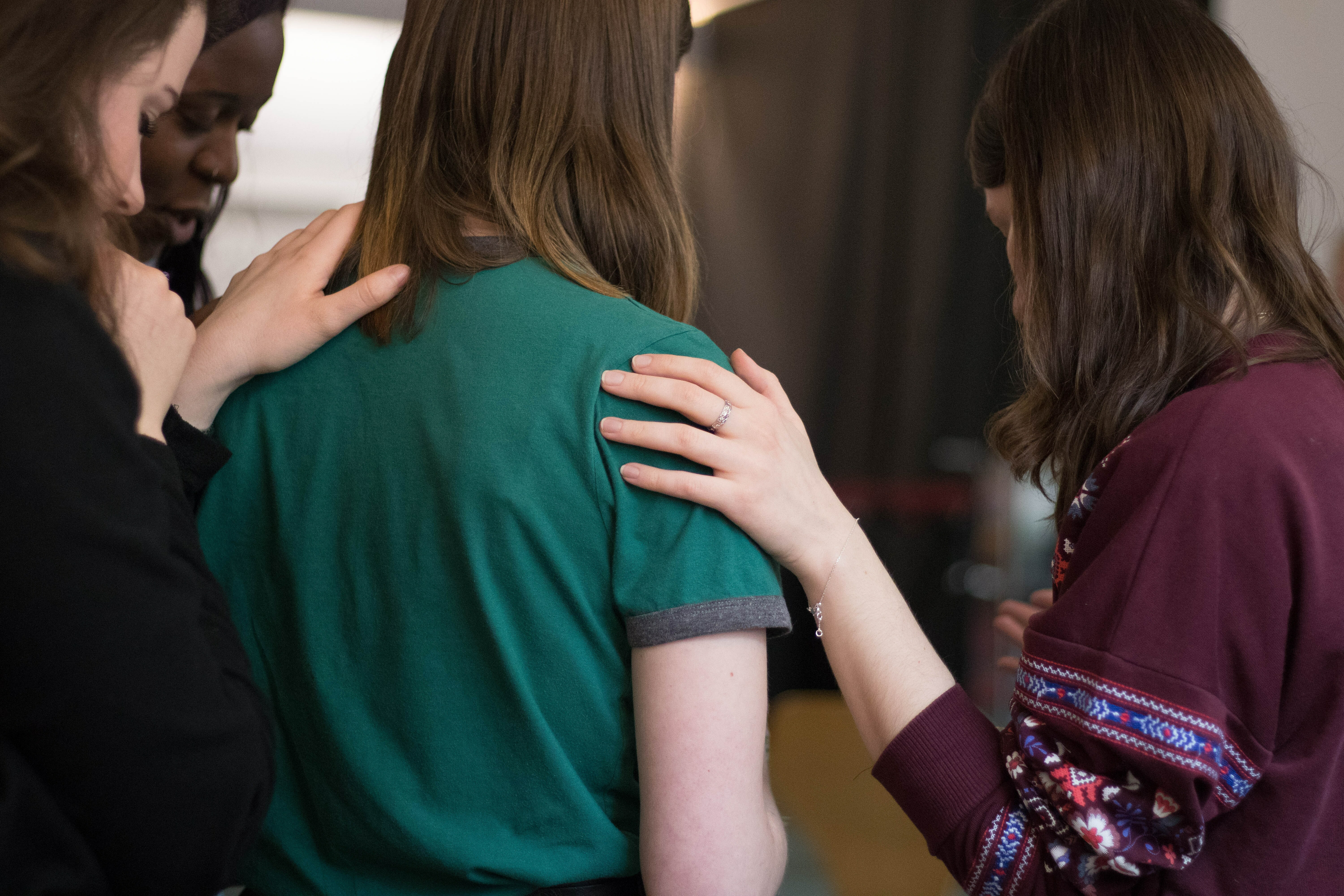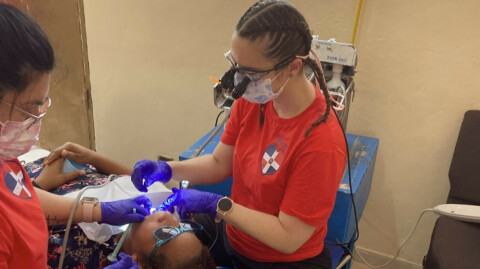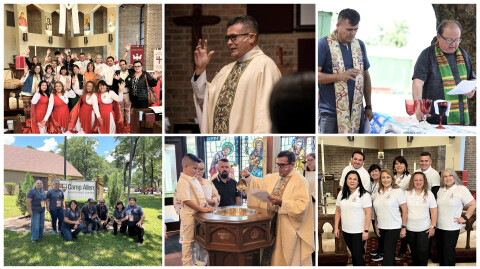Confirmation has experienced several interpretations since it began to develop in the early third century. At first it was inseparable from Baptism and Holy Communion and was the part of the initiation liturgy where the gifting of the Holy Spirit takes place through imposition of hands. The Bishop was the celebrant at this unified rite, for which the adult Catechumenate prepared by learning the catechism of the Church. At around the fifth century, the three rites of initiation were separated in time, as Confirmation became associated with the Bishop, and Augustine’s popularity pushed infant Baptism as close to birth as possible to prevent dying in original sin. It is at this point that Confirmation becomes an intermediary rite, both a completion of Baptism and a requirement before a person received Holy Communion for the first time. It was only after the practice of pushing Confirmation to the age of seven was clearly established that the theology of Confirmation was developed. The practice became a preparation for the struggle against Satan and a Sacrament necessary for salvation (Aquinas,) a man-made rite the church could do without (Luther,) and intense time of preparation on the catechesis of the Church leading to a public examination of the child (Calvin,) a reaffirmation of baptismal vows and the rite where strength is given to the child to live up to these vows (Cranmer,) etc.
For Cranmer, the celebration of Confirmation had two components; (a) Personal Profession of faith and commitment to renewal of the baptismal covenant on the part of the candidates, and (b) on God’s part, the “collation” or provision of “corroborating” or strengthening grace. Sadly, until the 1970’s, Confirmation in the Episcopal Church remained deeply associated with the idea of completion and development of Baptism, and as such, it was the requirement for the reception of Holy Communion for the first time. During the liturgical movement that gave rise to the 1979 Book of Common Prayer, the Church finally arrived at the conclusion that “Baptism admits to Communion,” (Roldan, 66.) This led to “A deeply rooted baptismal piety or spirituality within our common life,” (Ibid, 67.) This new spirituality of Baptism led to a diminished view of Confirmation, since it was no longer required before a person was welcomed to the Lord’s table.
I believe that if Confirmation is to have a future in our Church, its theology can not be allowed to deter, detract, or in any way reduce the theology of Baptism. Having said this, however, I believe it is possible to find a theology of Confirmation in the mandate to remember, and in the Biblical imposition of hands as a commissioning for ministry. In the same way Holy Communion is a Sacrament of incorporation into Christ, through which we break the bread and drink the cup “in his memory,” Confirmation needs to become the rite through which we are reminded of the vows we made at Baptism, and the new life we received in Christ. Washed in the waters of Baptism, we received a new identity in Christ and were made partakers of Christ’s priesthood.
We need opportunities to be reminded of this identity in Christ, to renew our baptismal vows, and to recommit ourselves to living into them. Confirmation is a rediscovery of our identity, a taking ownership of the legacy passed down to us by the saints, a mature reaffirmation of faith, and a re-dedication to be disciples of Jesus Christ in a chaotic and confusing world. As such, I call for Confirmation to be done often, within the context of various liturgical celebrations. We can still call the reaffirmation that takes place on the occasion of the Bishop’s visit a “Confirmation,” and we can use his imposition of hands as the visible sign of an internal strengthening. But this does not mean that it can only be done once. I believe it should be repeated often both before and after the Bishop’s visit. Imposition of hands can be done by the community when this is a commissioning service. The visible (audible) sign can then change to the recitation of the Baptismal Covenant for any other events. We should do this at the anniversary of our birth as a church, at the installation of a new Rector or the welcoming of a new Associate, at the dedication of specific ministries, and as needed after that. Not weekly, but often enough to be reminded of our identity in Christ, which we received at Baptism.
I call for a concerted and rigorous preparation for the Confirmation that will happen on the day of the Bishop’s visit, but I also call for a frequent and rigorous study of our baptismal vows as preparation for any of the events I mentioned above. Confirmation as a reminder of our identity and as a commissioning for ministry can revitalize our corporate life. It can also help us rediscover a useful and biblical understanding of the practice of setting-apart and commissioning for ministry, as it was done in the New Testament communities. Acts 13:2-3 tells us, “One day as these men were worshiping the Lord and fasting, the Holy Spirit said, ‘Appoint Barnabas and Saul for the special work to which I have called them.’ So after more fasting and prayer, the men laid their hands on them and sent them on their way.”
I know this not how we have practiced Confirmation, and I know it sounds a bit radical, but I believe we are prone to memory loss and we often need to be reminded of a few truths: Once we affirmed our faith through the Apostle’s creed, and promised to “Continue in the apostle’s teaching, fellowship, breaking of the bread, and the prayers.” Then we committed ourselves to perseverance in resisting evil, repentance and amendment of life when we sin, proclamation by word and example of the Good News of God in Christ, service of Christ in all persons, work for justice and peace among all people, and respect of the dignity of every human being. Church would become an incredible fountain of new life and love of neighbor if we were to tattoo these promises in our hearts. Please know that I remain available for conversation. If you would like to learn more than you ever thought possible about Confirmation, please ask me to lend you a copy of my doctoral dissertation.
May our Lord continue to bless you,
Fr. Roman+





